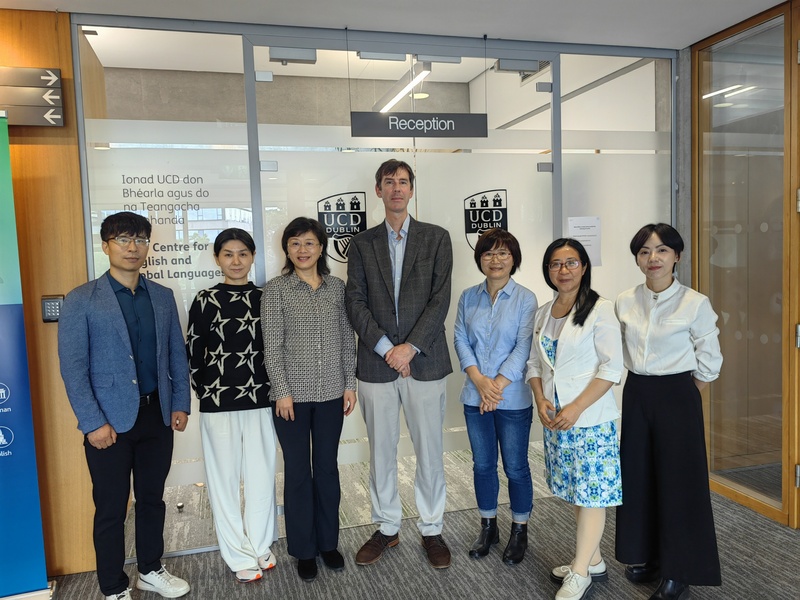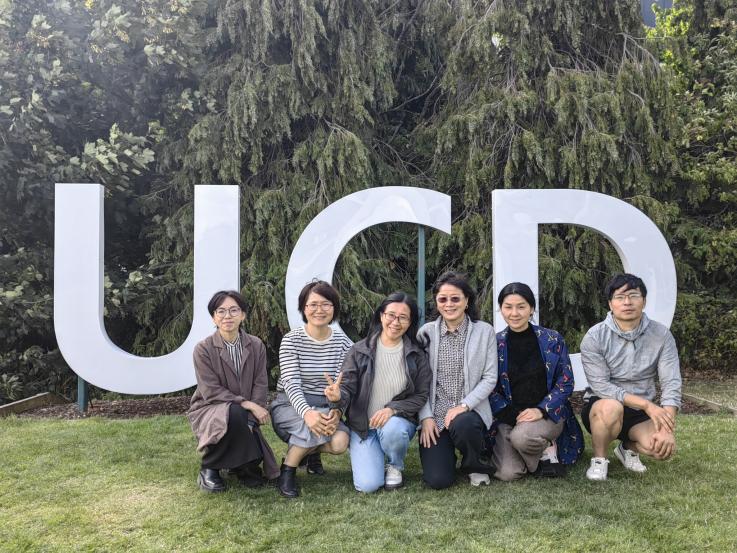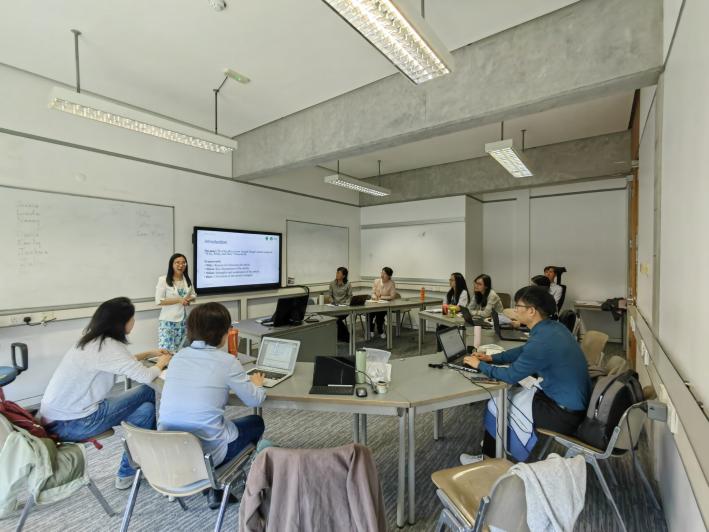Teachers Studied at University College Dublin in Ireland
Date: 2024-09-03
From July 8th to August 17th, 2024, under the leadership of Deputy Dean Liu Aodong, six teachers, including Liang Hongmei, Hou Lixian, Su Anmei, Zhou Meizhen, and Qin Jianhua, studied at University College Dublin (UCD) in Ireland.
The primary objective of this study trip was to engage in academic exchange and learning at the Centre for English and Global Languages, UCD. The core tasks included participating in three modules of English for Academic Purposes (EAP) and Teaching English to Speakers of Other Languages (TESOL). Additionally, the team collaborated with relevant experts from UCD to discuss the development and optimization of our university's EAP curriculum.

The first module, Approaches to Teaching English for Academic Purposes, was conducted from July 8th to July 20th, 2024, and was taught by Dr. Stephen Kelly. The course covered language learning theories, learner needs, curriculum design, teaching materials development, and teaching methodologies. The assessment for this module involved an individual presentation based on a self-selected academic paper.
The second module, Issues in Assessment, ran from July 21st to August 3rd, 2024. It delved into the objectives, principles, types, methods, construction, standards, reliability, and validity of language assessment. Dr. Anna Nunan addressed issues related to reading and writing assessment, while Dr. Alex Runchman covered listening and speaking assessment. The assessment for this module required reviewing BDIC (Beijing-Dublin International College) students' final exam essays and writing a reflective essay on grading criteria, feedback, and challenges encountered during the review process.

The third module, TESOL Pedagogy, was taught by Dr. Stergiani Kostopoulou from August 4th to August 16th, 2024. It encompassed the evolution of TESOL teaching methodologies, the Common European Framework of Reference for Languages (CEFR) and its implications for language teaching, task-based language teaching, and teaching strategies for listening, speaking, reading, and writing. The assessment for this module involved writing a 2000-word essay outlining the design and implementation of a course focused on one of these skills.
The team members diligently prepared for classes, actively engaged with instructors during lectures, and left a positive impression on the faculty. All members successfully completed the three modules and were awarded TESOL certificates.
Beyond their coursework, the team actively utilized UCD's extensive academic resources to conduct various academic exchange activities. They discussed EAP textbook compilation for agriculture, MOOC development, curriculum design at different stages, feedback from professional course instructors, and updates to EMI (English as a Medium of Instruction) module syllabi with Dr. Alex Runchman and Dr. Stephen Kelly. Members also participated in the online BELEAP (British Association of Lecturers in English for Academic Purposes) Assessment Roadshow, which explored the application of ChatGPT in academic English testing. Additionally, the team held a symposium with instructors from UCD's food safety, biology, and horticulture programs at the Guangzhou-Dublin International College of Life Sciences and Technology, South China Agricultural University. From an agricultural expert's perspective, they exchanged insights on the adjustments and improvements to the EAP curriculum's talent training program, syllabus, teaching content, teaching resources, and assessment methods. They also discussed macro strategies for talent cultivation from a global and cross-cultural perspective.

Through close collaboration with experts in linguistics, food safety, biology, and horticulture at UCD, the team significantly deepened their understanding and mastery of EAP teaching and TESOL. They acquired cutting-edge foreign language teaching concepts and practical experience, broadened their academic horizons, and enhanced their teaching capabilities.
Furthermore, the exchanges and discussions on talent training programs, syllabi, teaching content, teaching resources, and assessment methods with UCD experts laid a solid foundation for future projects such as compiling agricultural EAP textbooks, developing online agricultural EAP courses, and applying for first-class undergraduate courses from the Ministry of Education.
The study trip was conducted strictly according to the original plan, achieving the expected academic exchange and learning objectives. It is expected to significantly enhance the teaching effectiveness of the EAP curriculum and further improve the quality of talent cultivation at South China Agricultural University.
(Text and Photos by Qin Jianhua)


